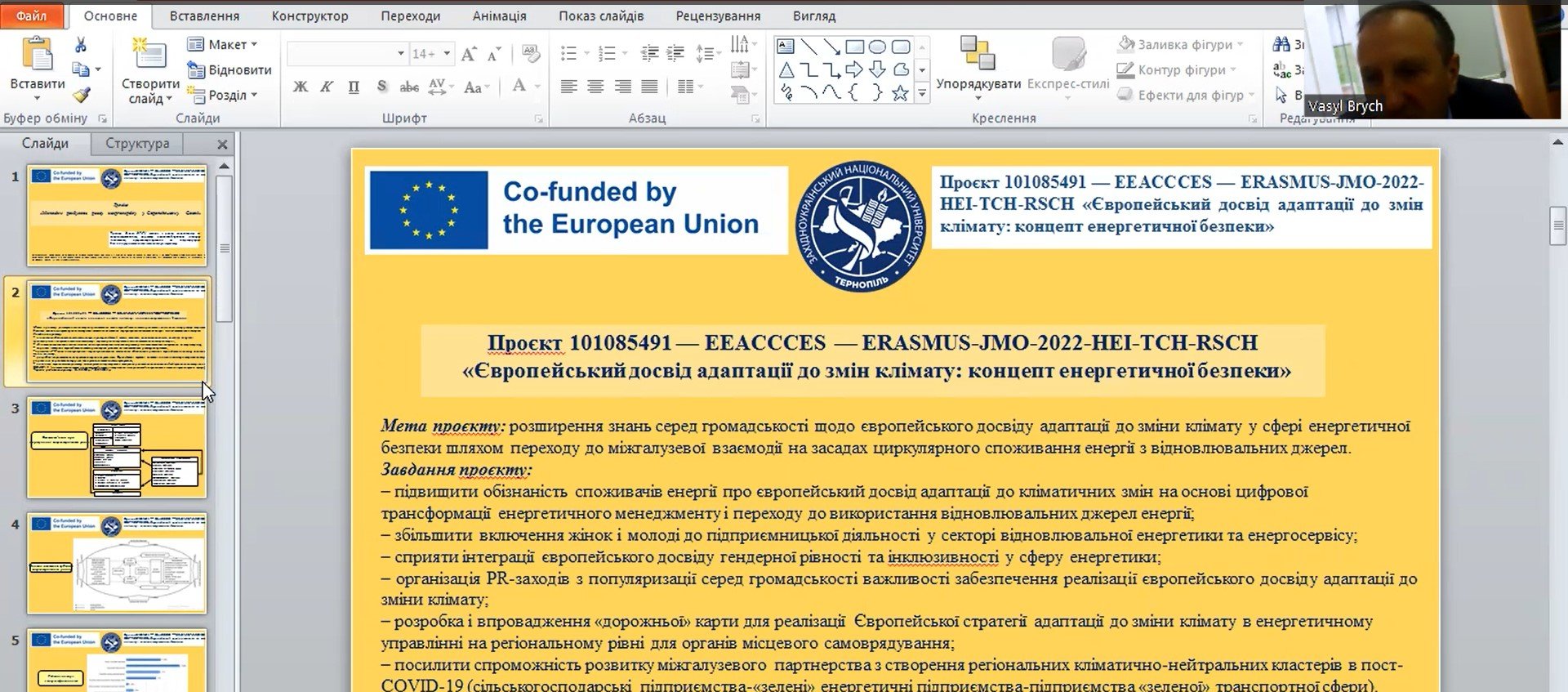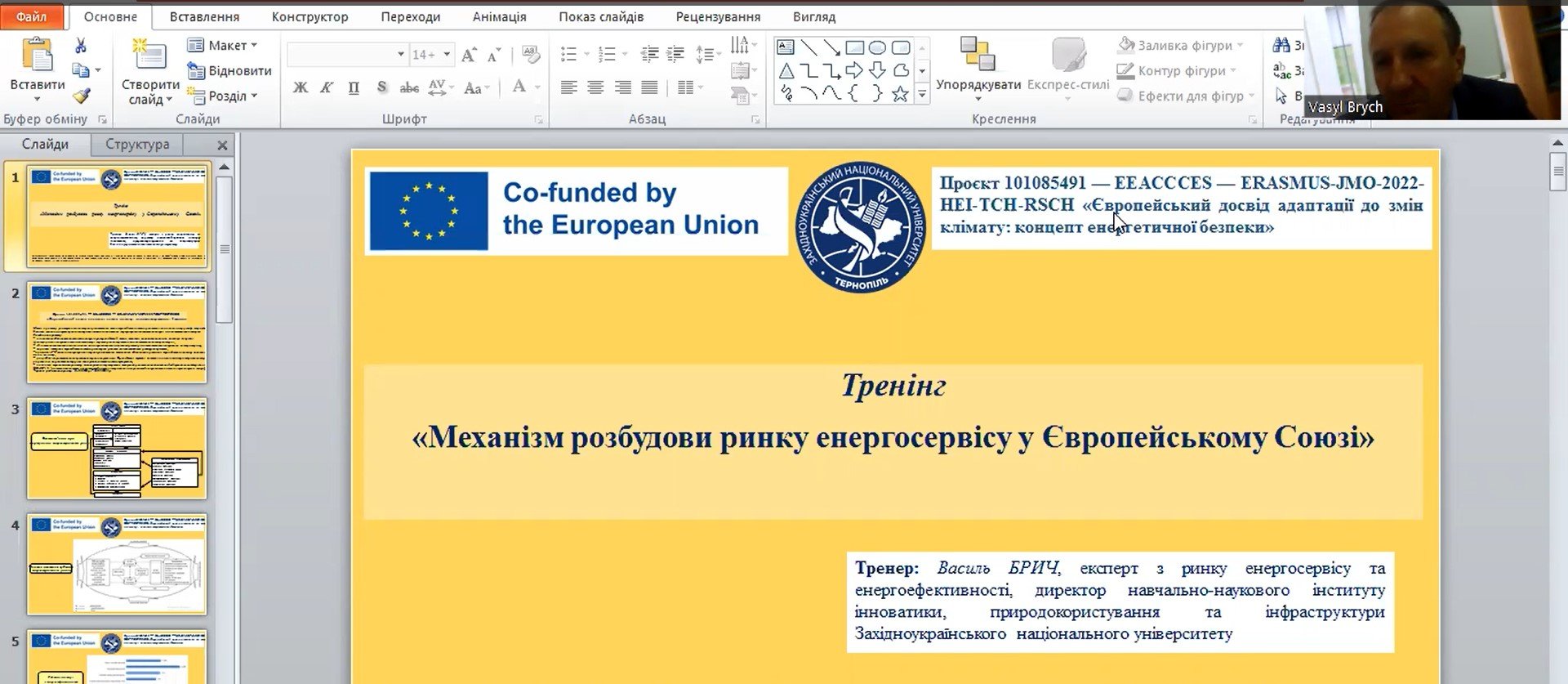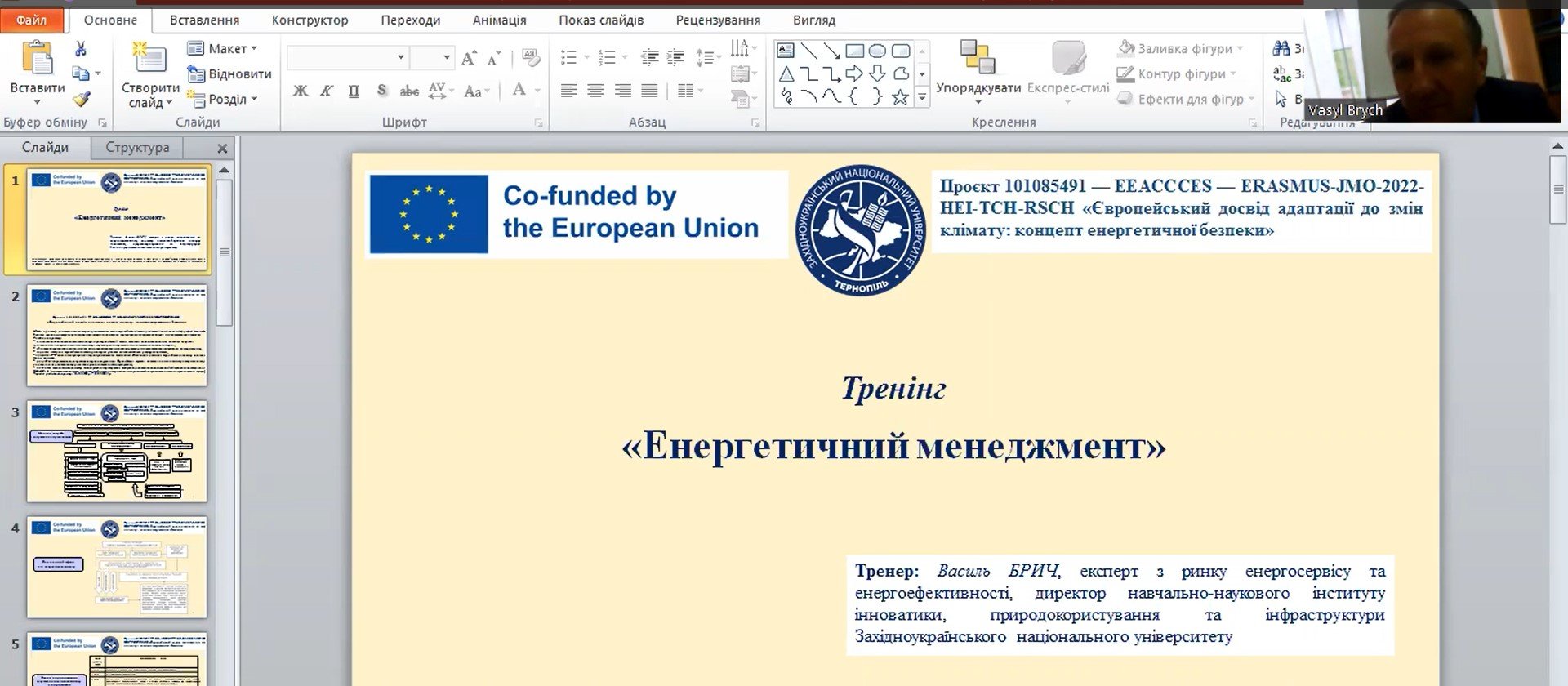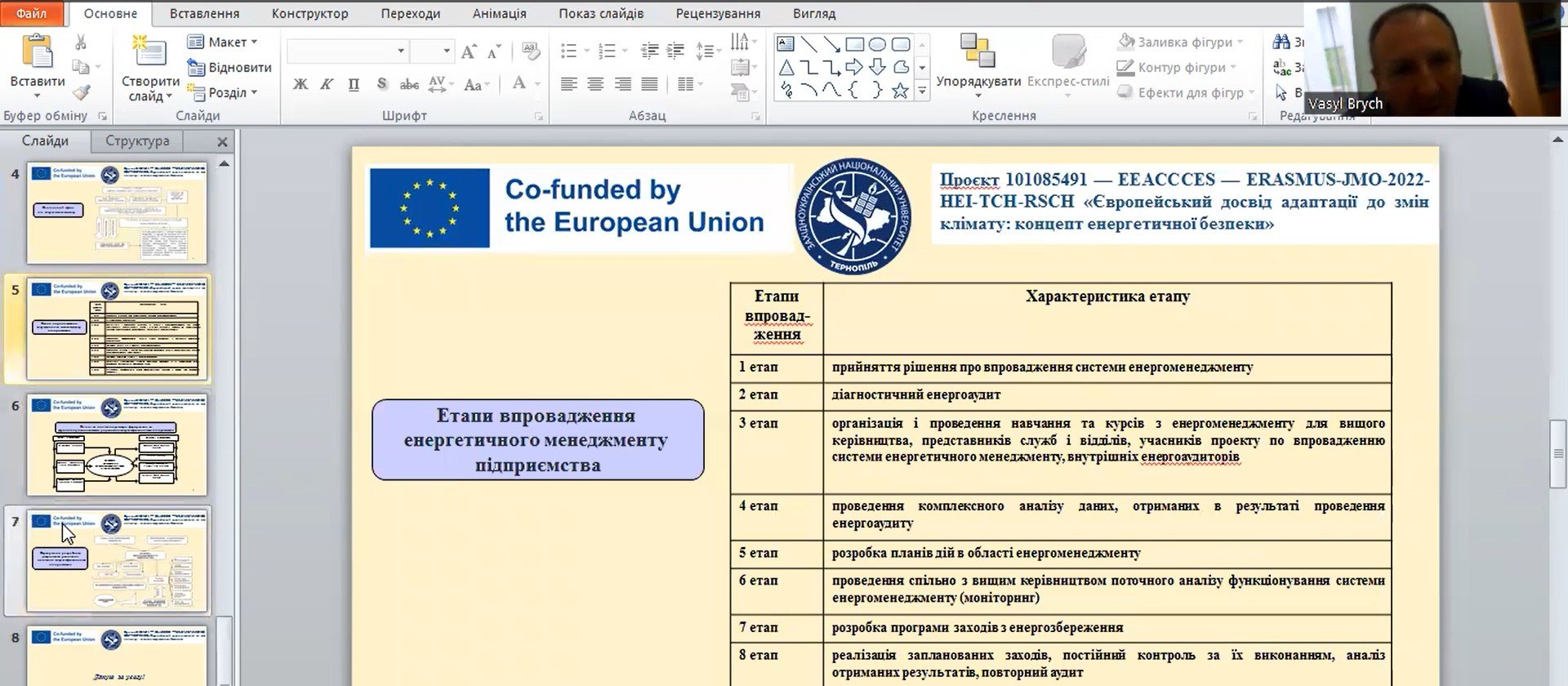Trainings within the framework of the project 101085491 – EEACCCES – ERASMUS-JMO-2022-HEI-TCH-RSCH “European Experience of Adaptation to Climate Change: Energy Security Concept” under the Erasmus + program (Jean Monnet) have begun at the Educational and Research Institute of Innovation, Nature Management and Infrastructure of the Western Ukrainian National University.
The trainings are aimed at raising students’ awareness of the impact of climate change on the development of the energy sector, the tools and benefits of energy management, engaging women and youth in business activities in the field of renewable energy and energy services, developing skills in energy management, energy audit, and environmental and energy literacy.
The training cycle includes various topics: “Renewable energy sources and technologies for clean, affordable and safe energy in the European Union”, “Environmental marketing”, “Sustainable urban development and the use of clean and smart transport in the European Union”, “Mechanism for the development of the energy service market in the European Union”, “Energy management”, “Organization of energy audits of households”, “Assessment of energy efficiency of buildings”, “Waste management in the European Union”, “Environmental and energy literacy”.
Director of the Educational and Research Institute of Innovation, Environmental Management and Infrastructure of ZUNU, Doctor of Economics, Professor Vasyl Brych conducted trainings on “Mechanism for the Development of the Energy Service Market in the European Union” and “Energy Management”, during which participants learned about the peculiarities of the energy service market in the European Union and Ukraine, and developed skills in implementing energy management in households and enterprises.
To register for the training, please follow the link: https://docs.google.com/forms/d/1sh0CdwmGvZnLXzn0mCF8ENpWazg6jpVkPlEStAY5x2Q
The organizer is the Educational and Research Institute of Innovation, Nature Management and Infrastructure of ZUNU.
Funded by the European Union. However, the expressed views and opinions belong solely to the authors and do not necessarily reflect the views of the European Union or the European Education and Culture Executive Agency (EACEA). Neither the European Union nor the grantor can be held responsible for them.





